
Space based internet systems have been in use since last many years, facilitated by geostationary satellites at a staggering 35,786km height above the equator that zip at about 11,000km per hour. Signals beamed from the satellites cover about one-third of the Earth's surface; hence three to four satellites can cover the entire planet.
However, a significant time lag, called latency, of about 600 milliseconds occurs between seeking the data and receiving it. Satellite internet using lower Earth orbit (LEO) satellites reduces the latency to 20-30 milliseconds, which is close to that of terrestrial systems.
To go around the Earth every few hours and balance the effect of gravity, the speed of LEO satellites should be more than double the speed of geostationary satellites, as a result their visibility at any location is reduced and many satellites are needed to cover the complete surface of Earth. Starlink is expected to deploy as many as 42,000 satellites at altitudes of 350km to 1,200km.
The satellite internet provides consistent signals with high speed and low latency to preclude annoyances, such as dropped calls and lost or delayed signals. Satellite internet is most suitable for areas where it is not feasible or viable to lay cables or set up transmission towers due to inaccessible terrain and high costs.
How satellite internet works
Satellite internet connections are provided by an array of interlinked small sized satellites moving in LEO. This array beams the internet signals down to transreceivers located on ground.
This story is from the July 2023 edition of Electronics For You.
Start your 7-day Magzter GOLD free trial to access thousands of curated premium stories, and 9,000+ magazines and newspapers.
Already a subscriber ? Sign In
This story is from the July 2023 edition of Electronics For You.
Start your 7-day Magzter GOLD free trial to access thousands of curated premium stories, and 9,000+ magazines and newspapers.
Already a subscriber? Sign In
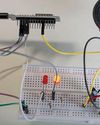
ESP32-Powered AUDIO-VISUAL SIREN
This sound alternator is designed to simulate the effects of a police siren, combining sound and light to create a dynamic audio-visual experience.
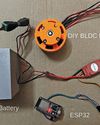
BLDC MOTOR With Web-Based Speed Control Using ESP32
Integrating wireless control into brushless direct current (BLDC) motor systems opens up exciting possibilities for applications such as remote-controlled cars, robots, and other innovative systems.
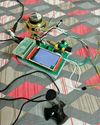
Pi Zero Portable BILINGUAL TRANSLATOR
This system is designed as a bilingual translator, leveraging the gTTS library to support multiple Indian languages, including English (en), Bengali (bn), Gujarati (gu), Hindi (hi), Kannada (kn), Malayalam (ml), Marathi (mr), Tamil (ta), Telugu (te), and Urdu (ur).
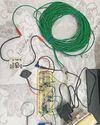
Op-Amp-Based VEHICLE THEFT DETECTOR
A simple, low-cost device can effectively alert homeowners or occupants if a parked vehicle is moved or tampered with.
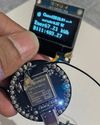
loT SMART METER With Dashboard
Energy meters in homes track electricity usage, enabling accurate billing by governments and providers.

Choose The Right Cloud Platform For Implementing loT PROTOCOLS
Working with loT protocols like MQTT, AMQP, and CoAP on cloud platforms is essential for developing scalable and efficient lol applications. The choice of the programming platform will depend on factors like project requirements, existing skills, and target devices. Leveraging the appropriate libraries and cloud services can enable seamless integration of lol devices with cloud-based applications.

Why TMR SENSORS Lead Next-Generation Design
TMR sensors are gaining traction in industries needing precision and power efficiency. What makes them the go-to choice for modern designs?
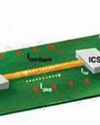
DESIGNING PCBs For EMI Management
Electromagnetic interference can derail your PCB’s performance. EMI management is not just a technical necessity but a hallmark of exceptional PCB design.

CUTTING COSTS, NOT CORNERS: Building Large Scale Applications With Open Source Software
Here are some strategies and best practices for leveraging open source to create enterprise-grade web and mobile applications without sacrificing quality or functionality.

"We Are One Of India's Very Few State Bodies To Manage The Entire Lifecycle Of The Electronics EcosystemFrom Approvals To Subsidies."
What is Gujarat State Electronics Mission GSEM), and how is it attracting major investments in electronics manufacturing, particularly semiconductor manufacturing, to Gujarat? To delve deeper, Electronics For You’s Nijhum Rudra spoke with Manish Gurwani, the head of GSEM. Here is what he revealed...